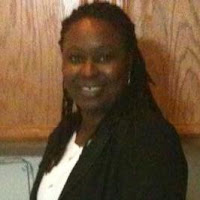Sierra Leone | In Pursuit of the American Dream
2015 will be a landmark year for Nenneh Tajudeen. A New Jersey-based case manager and part-time child therapist, she is looking forward to becoming a university professor. Nenneh moved to America from Sierra Leone at sixteen.
Sewa News: What was it like moving to America in the 1980s?
Nenneh Tajudeen: As a new immigrant in 1986, all I knew was getting an education. I enrolled at Hunter College [of the City University of New York] in 1988 while learning English as a second language and basic math. It took years to complete remedial courses but I was finally able to graduate in 1995. I became a public relations officer with the Africa Umoja (Swahili for Unity) club formed by African students at Hunter. During my senior year, I was president of the African club where I learned dealing with [people] was not an easy thing. I ignored so many not-so-good comments from all races and put much effort in concentrating to graduate. I repeated some courses but that was fine with me and made me pass my entire exam.
Living in Manhattan in the '80s was a good experience since I had to walk for only 15 minutes to school. I did not work while at Hunter; all my expenditure was taken care of since I was a committed full time student then. I had no children but only took care of myself which was easy.
Sewa News: You graduated from Hunter College in 1995, why did you major in community health?
Nenneh Tajudeen: I wanted to become a social worker but the program at Hunter had a two-year wait list so I decided to study sociology but did not like it. I dropped sociology, tried community health education, liked it and graduated.
Sewa News: You landed a job as a public health adviser with the New York City (NYC) Department of Health, and later as an integrated case manager with non-profit organizations both in NYC and New Jersey. You also became a mother in 1997, two years after graduating. You were twenty-nine and a divorced parent.
Nenneh Tajudeen: Raising my son in NYC and working full time was a challenge--having to wake up early in the mornings to drop off my son at the day center and drive myself to work Monday through Friday. But I became stronger each day. My commute varied from 45 minutes to an hour.
I made home visits to test people who'd come in contact with an infected tuberculosis (TB) individual. My job was to counsel people about TB and if necessary take them to the hospital for an evaluation and chest X-ray. I was in the contact investigation unit trying to control TB cases with the health department in NYC. Since 1995, I have been a case manager working with AIDS patients, homeless folk, and mentally-diagnosed clients with substance abuse.
Sewa News: You earned a master's in general psychology from the University of Phoenix in 2010. Currently, you are pursuing your doctoral studies with Walden University in clinical psychology.
Nenneh Tajudeen: While pursuing my Ph.D, I also work full time, take care of my family and this summer will start my practicum or internship. It entails administering psychological testing and psychotherapy. I am still working on my dissertation. I intend to publish the abstract and also recommend as a pilot program. I am interested in making a difference in Sierra Leonean topics such as female genital mutilation and its effect on young girls including the elderly involved in this practice.
Sew News: What's your secret to work life balance?
Nenneh Tajudeen: As we all know working and schooling is very difficult, especially when you have to come home cook for the kids, and put them to bed. My full time job is very flexible which allows me to do 8 hours, go to school, and take care of my family. Working women should get a job that is flexible so they can work and at the same time go to school and raise a family if they chose to. Have the courage, determination, and convince yourself that it can be done with good intentions. Now, I am able to conduct a research, and if I can do it, you can do it too.



Comments